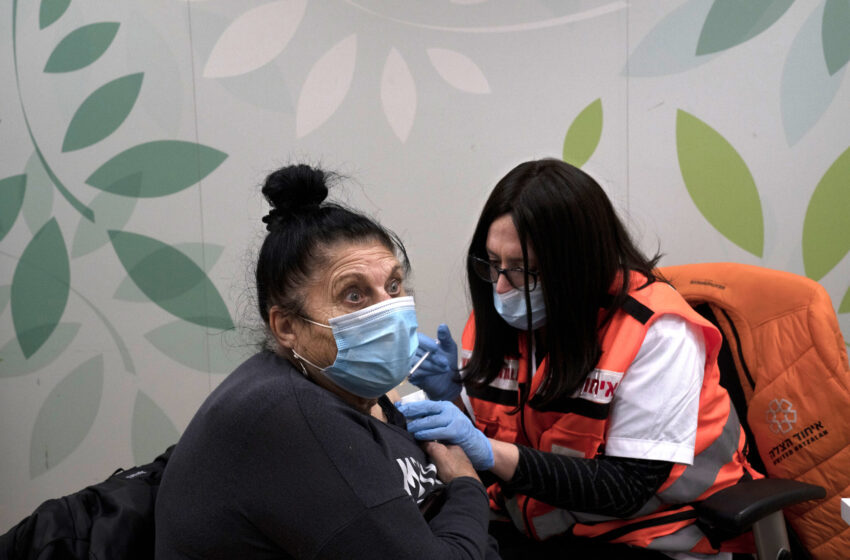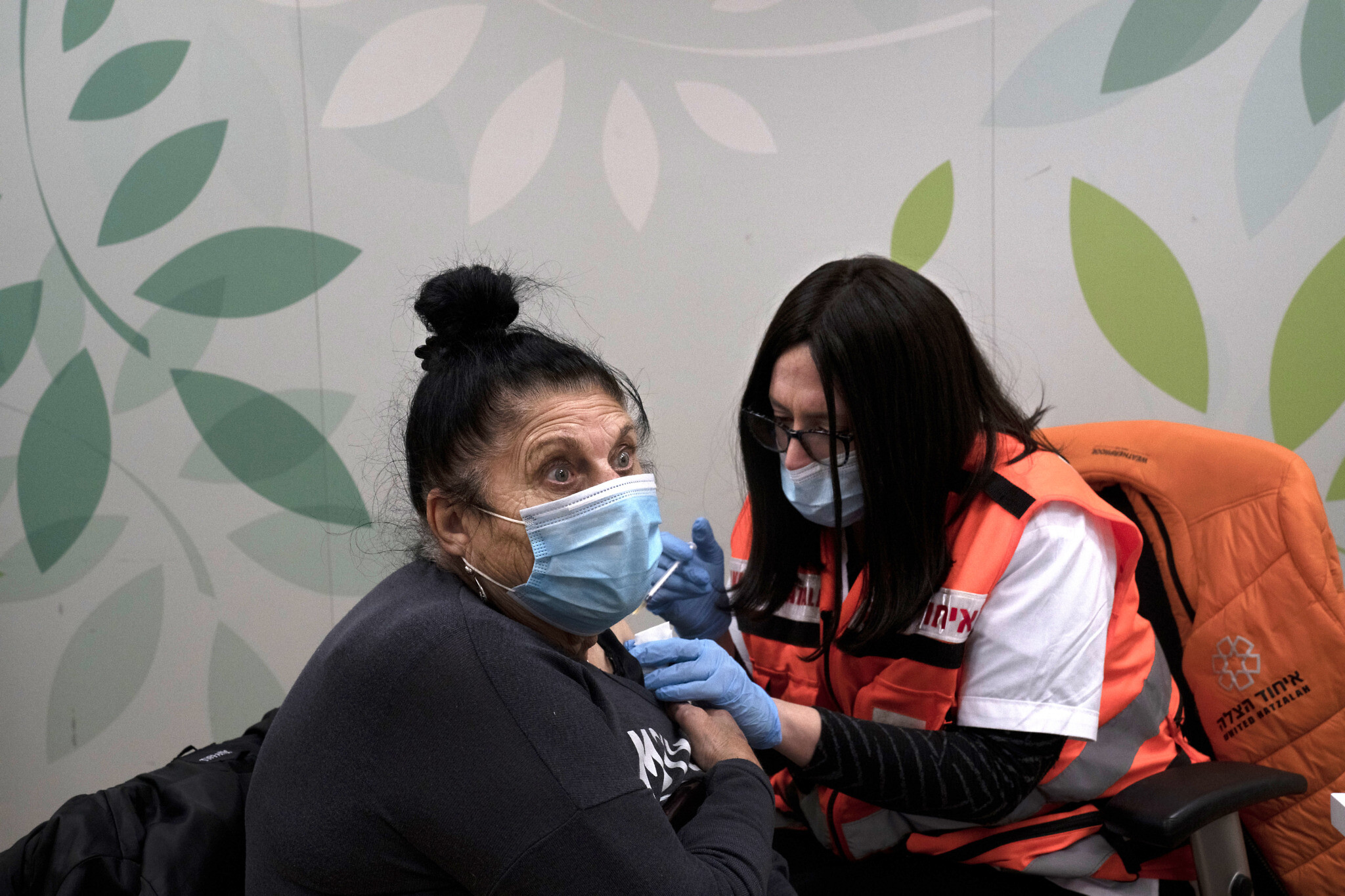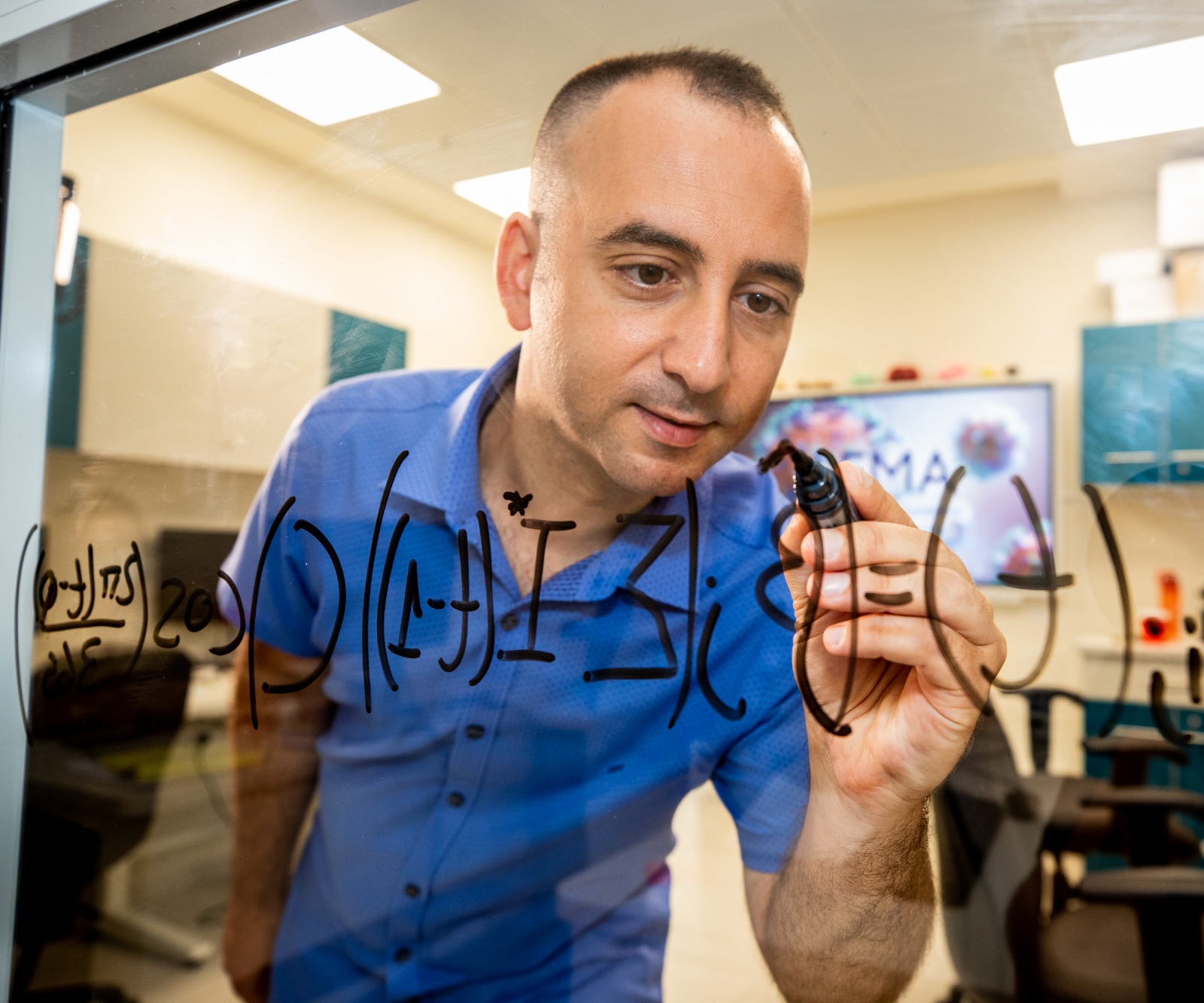
Israeli researchers propose vaccine trial overhaul: Smart sensors instead of surveys
Israeli scientists say they have developed a new and potentially more reliable method for assessing vaccine safety — using smart sensors instead of relying on patients reporting on how they feel.
A research team from Tel Aviv University attached electronic sensors to the chests of 160 Israelis receiving their second coronavirus shot. The results of their study have been peer-reviewed and published in Communications Medicine, a journal from the Nature portfolio.
The sensors measured physiological reactions from one day before to three days after receiving the vaccine. They monitored heart rate, breathing rate, blood oxygen levels, heartbeat volume, temperature, cardiac output, and blood pressure.
The study gave a far more detailed view of the body’s reaction to the vaccine than any previous research, according to Dr. Dan Yamin of Tel Aviv University’s Epidemic Research Center.
“Normally, vaccine trials rely heavily on what people say about themselves and how they’re feeling, but this study opens up the possibility that we can take a much more objective approach,” Yamin told The Times of Israel.
“We fitted people with sensors that gathered accurate information for days after vaccination, and it’s possible that vaccine trials of the future will take this approach.”

An Israeli woman receiving a coronavirus vaccine (AP Photo/Maya Alleruzzo)
He said the study provided the “proof of concept” that his team was looking for, and added, “This could be a game-changer.”
Yamin stressed that the overall results posed no challenge to the understanding that coronavirus vaccines are safe — saying the important thing is that the trials were detailed enough to flag side effects.
The study picked up physiological signs of notable short-term side effects. In the case of the COVID shots they mostly subside after 48 hours and don’t cause health problems beyond grogginess. But the system is tuned to detect longer-lasting side effects, and will be put to the test on other vaccines in due course, Yamin said.

Dr. Dan Yamin of Tel Aviv University (Moshe Baderashi)
He suggested that if deployed, smart sensors could eventually reduce the number of people needed for trials, because if data is more objective and reliable, smaller sample sizes may suffice.
Yamin’s colleague Dr. Yftach Gepner, who led the research, commented: “The message from our study is clear. In 2022 the time has come to conduct continual, sensitive, objective testing of the safety of new vaccines and therapies. There is no reason to rely on self-reports or wait for the occurrence of rare side effects. Preliminary signs that predict such conditions can be detected with advanced sensors.”
Gepner added: “Today trial participants are invited to the clinic for blood pressure testing, but often their blood pressure rises just because the situation is stressful. Continual monitoring at home solves these problems with simple, convenient, inexpensive, and accurate means. This is the kind of medicine we should strive for.”
